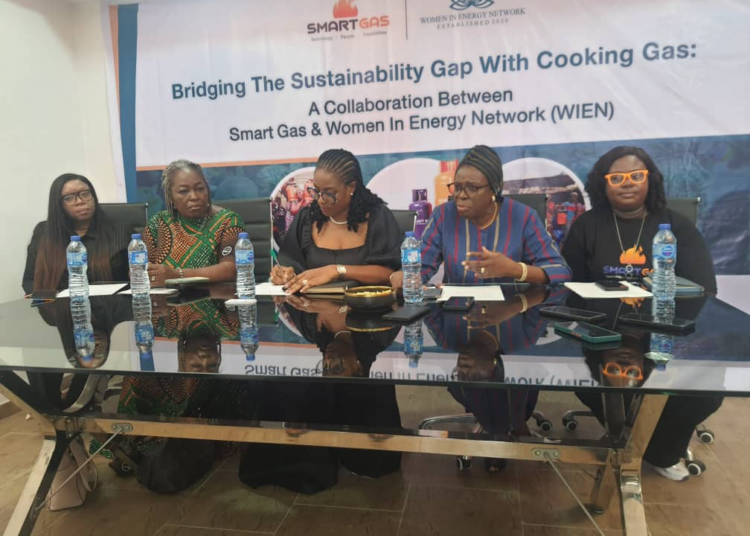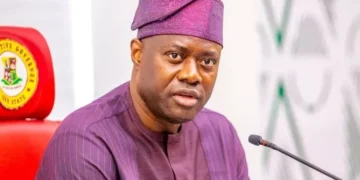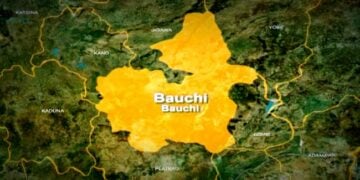In a significant move to create awareness on dangers of cooking with dirty fuels and expand adoption of Liquified Petroleum Gas (LPG) or cooking gas in Nigeria, the Women In Energy Network (WIEN) has flagged off a national campaign that aims at distribution of gas cylinders including gas content to households.
The huge capital-intensive project would take place across all 774 Local Government Areas (LGAs) in Nigeria.
The initiative involves free distribution of 100 gas cylinders per annum and knowledge-sharing among community groups and members on safety measures.
LEADERSHIP reports that the latest move was prompted by reports that over 98,000 Nigerian women die annually from the use of firewood and charcoal.
According reports, about 21,000 women die annually from the usage of dirty fuels in the Niger Delta region.
Cooking with firewood and charcoal is equivalent to smoking 20 packages of cigarettes, noting that such is what Nigerian women go through on a daily basis.
President of WIEN, Mrs Eyono Fatai-Williams, while announcing the launch of the initiative in Lagos on Thursday, said the group was not alone in the project but was collaborating with Smart Gas Limited to deepen the penetration of the LPG.
Fatai-Williams spoke passionately about the collaborative initiative to expand the use of LPG in local communities, a move she said aligns with the Nigerian government’s agenda for fuel diversification and economic sustainability, particularly as it work towards reducing dependence on traditional and non-renewable energy sources.
She said the effort will go a long way in supporting Nigeria’s fuel diversification strategy as government has recognised the importance of diversifying its energy mix to ensure long-term economic stability.
“By promoting LPG as an alternative to firewood and coal, this initiative directly supports the federal government’s National Gas Expansion Program (NGEP), which aims to increase domestic LPG consumption and reduce reliance on kerosene and other polluting fuels,” she added.
On economic efficiency and cost savings benefits, Fatai-Williams argued that LPG offers a more cost-effective and sustainable energy source for households compared to firewood, coal, and kerosene. It not only reduces household energy expenses in the long run but also helps the country reduce fuel importation costs.
The increased use of LPG mainly from local sources like the NLNG and other fractionation plants like NEDOGAS strengthens the country’s economy by keeping energy-related funds circulating within Nigeria.
Speaking on health benefits and aligning with public health goals, the WIEN president noted that one of the Nigerian government’s key goals is improving public health, particularly in underserved communities.
She said, “Household air pollution from the use of firewood and coal is a major cause of respiratory diseases in Nigeria, especially among women and children. The shift to LPG directly contributes to achieving the national health agenda by reducing the burden of respiratory illnesses and decreasing healthcare costs.”
Speaking on the environmental sustainability of the initiative in line with national targets, Fatai-Williams, explained that LPG is a cleaner fuel compared to firewood, coal, and kerosene, and its increased adoption plays a critical role in Nigeria’s efforts to reduce environmental degradation.
She counselled that deforestation caused by firewood collection, soil erosion, and harmful emissions can be minimized as more households transition to LPG, aligning with Nigeria’s commitments to combating climate change and preserving our ecosystems.
In addition, she spoke of time-saving and boosting productivity, stating that switching to LPG doesn’t just save costs, but saves time.
“Collecting firewood is labor-intensive and time-consuming, especially for rural women. By making LPG widely available, we are empowering households with more efficient cooking methods, allowing women and families to redirect their time to education, income-generating activities, and other productive endeavors. This is consistent with the government’s goals of improving productivity and human capital development.” She said.
In addition to fuel diversification and push to drive economic growth, Fatai-Williams,pointed out that the initiative will contribute significantly to economic diversification by creating a new value chain for LPG distribution and services. The distribution channel act ivies will stimulate local economies and create jobs, supporting the federal government’s drive to boost non-oil sectors of the economy.
She is also optimistic that it will increase energy accessibility for Nigerians as
Government’s energy policies emphasize equitable energy access, ensuring that no Nigerian is left behind in the transition to cleaner fuels.
This program she went to say is a critical step towards fulfilling thIS vision by ensuring that even underserved and rural communities have access to safe, affordable, and modern energy sources like LPG. This aligns with the government’s commitment to reducing energy poverty.
Fatai-Williams, also said that it will go a long way to enhance energy safety and national standards as safety is a top priority in Nigeria’s energy policies. LPG is not only cleaner but also safer than traditional cooking methods when properly handled.
Through this partnership, the Group aims to raise awareness on the proper use and safety of LPG, aligning with the government’s push for higher safety standards and regulations in energy use to protect citizens from accidents and hazards.
She said the initiative is a strategic fit with national development goals as the collaboration is aware that the government has in its programmes partnered several industry investor and operating groups on gas penetration and fuel diversification.
The WIEN President said they are properly positioned as mothers and home managers to take effective roles in the prevailing programmes to displace dirty fuels from Nigerian homes and improve the environment for the health and wellbeing of our children, adding, “This partnership between WIEN and Smart Gas Limited perfectly aligns with the Nigerian government’s broader fuel diversification agenda and its goals for economic growth, environmental sustainability, and public health improvement. By deepening LPG penetration, we are supporting the country’s energy transition, creating jobs, improving lives, and protecting our environment. We are proud to contribute to a vision of a cleaner, healthier, and more prosperous Nigeria.”
Also, speaking, the Chief Executive Officer (CEO) of Smart Gas, Dr. Yinka Opeke, said her firm is excited to be part of the project and assured of contributing towards realizing the vision.
Opeke was also passionate about breaking the barrier in strengthening energy transition through LPG adoption but expressed concern about bringing more funding to accelerate the transition process.
She said the company has positioned itself as a critical component of the energy transition process as initiated by federal government and is currently expanding its energy network to ensure sustainability in the chain development.











